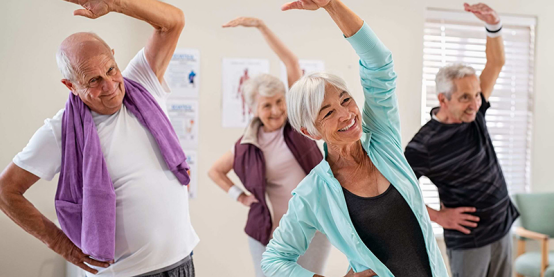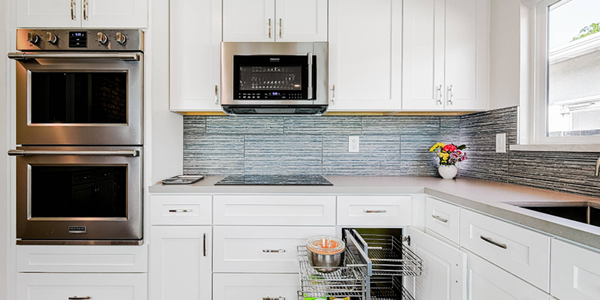As we age, our bodies and minds need extra care to remain healthy and happy throughout each season. Whether it is summer's warmth or winter's cold, every season brings its own set of challenges and opportunities for thriving. I've put together easy, practical tips to help seniors adapt their lives and enjoy every season's pleasure. Let's get started!
As we age, our bodies and minds need extra care to remain healthy and happy throughout each season. Whether it is summer's warmth or winter's cold, every season brings its own set of challenges and opportunities for thriving. I've put together easy, practical tips to help seniors adapt their lives and enjoy every season's pleasure. Let's get started!
Spring: Refresh with New Energy
Spring marks a time for renewal. Days grow longer, flowers bloom in every colour, and the world wakes up again. It is the perfect time to refresh your routines and upgrade your wellbeing.

1. Get Moving Outdoors
Enjoy the good weather by stretching, gardening, or walking in the park. Regular, gentle exercise can strengthen muscles, balance, and improve mood. Even a 15-minute daily walk can make a big difference. Invite a friend or join a local group to keep you on your toes!
2. Reach Out to Cherished Ones
Spring break holidays like Easter or Mother's Day are great reasons to visit with family. Socialization keeps loneliness away, which is essential for mental health. If in-person visits are not possible, try video calls or telephone conversations.
3. Declutter Your Space
Spring cleaning isn't just for homes—it's for minds, too! Organizing your living area can reduce Stress and create a sense of control. Donate unused items or rearrange furniture to feel refreshed.
4. Savor Seasonal Specialties
Spring veggies such as spinach, peas, and asparagus are nutritionally dense. To get a nutritious boost, throw them into salads or soups. Replace winter's dense foods with lighter foods that vibrate with the season's active energy.
Summer: Keep Cool and Active
Summer is all about sunshine and heat, but be careful not to have heat-related problems. Pay attention to keeping yourself hydrated, covered, and active.
1. Hydrate First
Dehydration is more likely to occur in older adults. Drink water regularly, even if you're not thirsty. Add lemon or berries for flavour. Avoid sugary beverages and alcohol, which dehydrate your body.
2. Safeguard Your Eyes and Skin
When outside, wear sunscreen with SPF 30+, a broad-brimmed hat, and sunglasses. Sunscreen prevents skin damage and reduces cancer risk.
3. Remain Active with Gentle Exercises
Join a book club, attend outdoor concerts, or host a backyard BBQ. Social connections help to keep your mind sharp and your spirits elevated. If the heat becomes too oppressive, move the gatherings indoors, where air conditioning awaits.
4. Modify Your Exercise Routine
Attempt water aerobics, Yoga, or chair exercises to keep yourself moving without getting too hot. Early morning or evening is the best time for exercising outdoors.

Fall: Get Ready for Warm Comfort
As the temperatures drop, autumn beckons us to slow down and focus on emotional and physical warmth.
1. Nutrition to Boost Immunity
Stockpile vitamin foods such as squash, apples, and sweet potatoes. These autumn foods strengthen your immune system. Soups and stews are easy to digest and ideal for cold, crisp days.
2. Stay Active Inside on Rainy Days.
Turn your living room into a gym! March is in place; use resistance bands or follow TV exercise shows. Exercise maintains joint flexibility and steady energy levels.
3. Mind Your Mental Health
Fewer daylight hours can affect mood. Practice gratitude by jotting down three things you are thankful for each day. Mindfulness practices, like slow Breathing, also decrease Stress.
4. Schedule Health Check-ups
Fall is ideal for flu shots, dentist visits, and routine check-ups. Preventive care catches issues in the early stages. Don't skip these appointments—they're your first defence!
Winter: Own Quiet Strength
Winter can be isolating, but with the proper mindset, it's a time for reflection and snuggly self-care.
1. Combat Isolation
Plan frequent calls with loved ones, take online courses, or volunteer virtually. Staying connected prevents loneliness, which is harmful to mental and physical health.
2. Keep Your Body Warm
Layer clothing, use blankets, and set your thermostat to at least 68°F (20°C). Cold homes increase the risks of hypothermia and falls.
3. Focus on Brain Health
Challenge your mind with puzzles, reading, or learning a new skill. Mental activity builds resilience against memory decline.
4. Prioritize Vitamin D
With less sunlight, many older adults lack vitamin D. Ask your doctor about bone and immune health supplements.
Year-Round Essentials
No matter the season, some habits are always important:
Sleep Well: Aim for 7–9 hours nightly. Poor sleep worsens memory and mood.
Limit Screen Time: Too much news or social media can heighten anxiety.
Laugh Often: Watch a comedy, share jokes, or play with grandkids. Laughter truly is good medicine!
Embracing Each Season with Joy and Vitality
Ageing gracefully isn't about avoiding challenges but adapting with wisdom and joy. By tailoring your routines to the seasons, you'll protect your health while savouring simple pleasures. Remember, minor changes add up. Whether it's a walk in spring rain or a cup of cocoa by the fire, every moment is a chance to thrive.
- Share this article:
-
![10 Essential Tips For Designing A Functional And Stylish Kitchen]() Home & Garden
Home & Garden - 10 Essential Tips For Designing A Functional And Stylish KitchenYou have a home now, and your next big step is to design the kitchen, right? Designing a kitchen is no longer about picking just some cabinets and countertops. It includes everything from paints to lighting to centrepieces and so much more. You would want your kitchen to be functional, modern, and sleek. Whether renovating or building from scratch, these ten essential tips will guide you toward creating a functional and stylish kitchen.
-
![How To Make Your Foundation Last All Day – No Touch-Ups Needed!]() Beauty
Beauty - How To Make Your Foundation Last All Day – No Touch-Ups Needed!Does your foundation melt by midday? If you struggle with oily skin, humidity, or lack of touch-ups, it's time to try the right products and techniques. These expert tips will help keep your foundation smooth and lasting all day, regardless of skin type.









